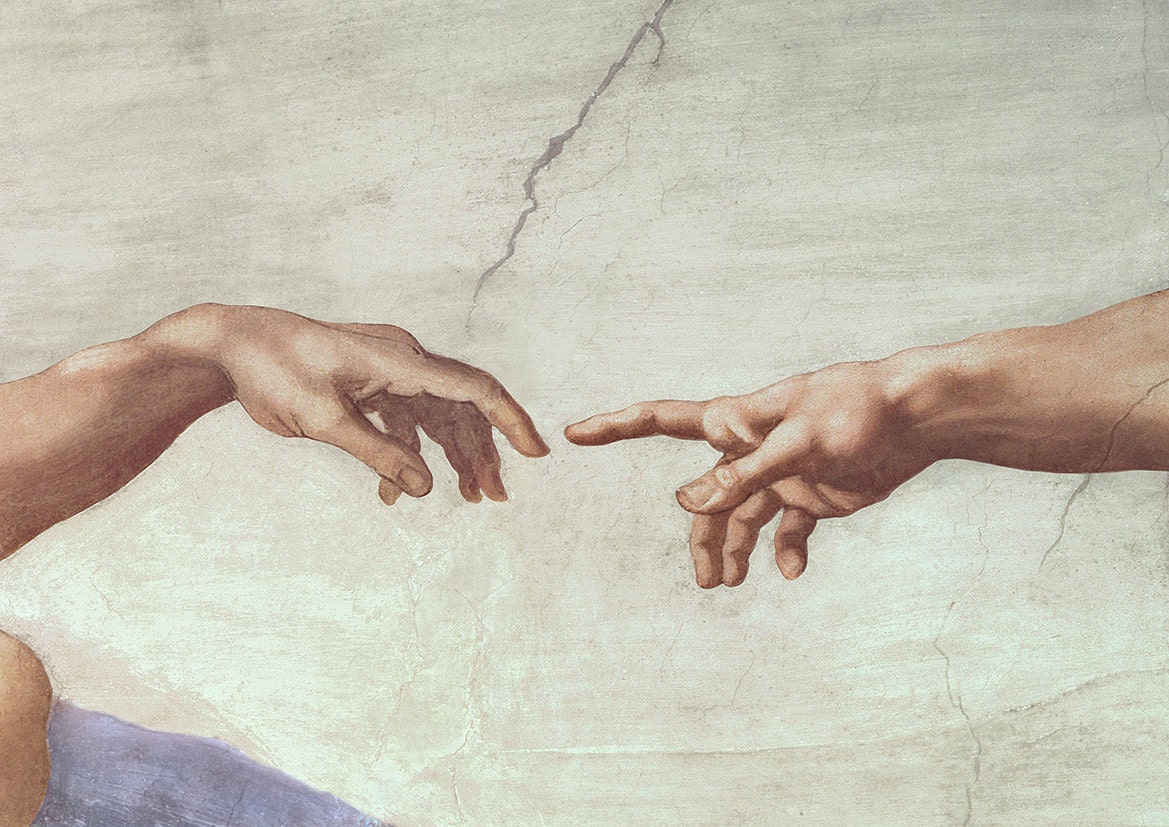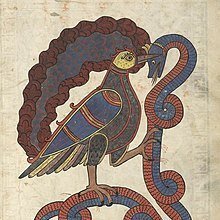-
Content count
1,394 -
Joined
-
Last visited
-
Days Won
7
Posts posted by Sir Darius the Clairvoyent
-
-
Yes. I’d asked you if it was the case. You said it is, but it is anti semitic, ergo it is not the case. Strange.
If you asked me if Norse pagans practiced human sacrifice, I’d answer yes they did.
I would not lable you anti-Germanic.
-
 1
1
-
 1
1
-
-
I think you’ll enjoy this. It is from foreword of Meditations, written by Viggo Johannesen:
So let's ask the question: Is there anything to being a human being?
Some might say no to that as well, arguing that being human is purely a socially constructed phenomenon. Regardless of what you believe personally, remember that science cannot help you here. On this point, science is as helpless as faith, it can only believe. Science assumes that man is a material phenomenon in a material world. Which is a decent assumption, but only an assumption. Even a metaphysical assumption. Completely without scientific evidence. As we all know, humans are conscious beings, and since science only recognises material phenomena as real, it is forced to assume that consciousness is something material. Humanity's wisdom traditions, on the other hand, have always spoken of spirit. Spirit is beyond time; it refers to that in man which belongs to eternity. This cannot be proven scientifically either, so we are left with ourselves and our own experience as the only witness to the truth.
Is it something to be a human being?
Where do you stand on this perhaps most fundamental question of them all? Have you made up your mind, and if so, on what basis?Translated with DeepL (https://www.deepl.com/app/?utm_source=ios&utm_medium=app&utm_campaign=share-translation)
-
5 hours ago, Sanity Check said:Hmm it is intriguing. I am not sure I agree that it is the intended message of the text, but the nuclear analogy seems reasonable.
-
 2
2
-
-
6 hours ago, Nungali said:If your source is general and unknown then it could come from all the spin off stuff that has come out of that book and used out of context, in part or mixed in with other things to support all kinds of possible wacky agendas .
I’m certain it was an legitimate document, but I can’t recall which. The advice I definitely take to heart tho. I’ve definitely falled in that trap from time to time, and absolutely, if a more precise definition of what I’d like to discuss would lift the debate.
-
 1
1
-
-
21 minutes ago, Daniel said:I hope this helps and wasn't too long. It's very important that each of the other chapters are included in the understanding of what happens in Chapter 6.
If you have questions or comments I am very curious to read them.
Blessings to you, always and forever,
Thank you. Both for the explanation, kind words and invitation to dialogue.
I do infact have one thing I’d like to ask you about. You wrote a lot about laws. My question also concerns laws, but not in the same sense as you used it. It is both off topic and might come off as insensitive, but if you’d be willing to help me out, I’d appreciate it. If you don’t want to adress it, that’s perfectly fine as well.
Anyway, the following is what I’d like to learn about. I came across some aspects of Jewish law that was, to be blunt, very surprising and a little disturbing , very recently. I was told that Jews operate with two sets of laws. One for the Jews, and another for gentiles. Appearantly debt towards fellow Jews should be forgiven, but debt by gentiles should never. Jews shall never pay interest, while gentiles can never not pay intereset. A Jew killing a gentile has no legal consequences, while a gentile killing a Jew is punishable by death.
So yeah, mind shedding some light on this? -
Allthough there are several versions of the text, I think it is only considered scripture by the Ethiopian church. I don’t think any other church or Judaism recognizes it. I think I heard that a certain passage of OT or some other Jewish text, that is often referred to as the parallels or something like that, bear strong resembelence to the book of Enoch. I was however unable to dig it up. Maybe you @Daniel, might know about this?
-
1 minute ago, Maddie said:Don’t worry bout it. Speaking for my self, I tend to find natural beauty and charm way more attractive than people to concerned about makeup and impressing others. Just in case: I am not at all suggesting you do that
-
2 minutes ago, Maddie said:Cool, she's very pretty.
Very much so.
-
Just a little curiosity, @Maddie
this is Emma Elingsen:

She was born a boy. To the TikTok generation, she is among the most influential and loved celebs in this frozen land of ours.
-
 1
1
-
-
6 minutes ago, Maddie said:This is a common misunderstanding of the difference between sex and gender. Sex has to do with the physical reproductive organs. Gender is both a societal and mental construct.
When saying "we" keep sticking to two genders, its important to clarify who is the "we" that we speak of. Many cultures have more than two genders. The ancient Hebrews had six.
Do you know when the concept of gender entered the west tho? I don’t.
-
1 minute ago, Sir Darius the Clairvoyent said:Think it pretty much boils down to the fact that you need a penis and a vagina in order to create children.
Continuing: intersex is real, no doubt. But it is extremely rare, and when it happens, they are useally primarily one of the two genders.
-
1 minute ago, Bhathen said:From the writings of Saint Agasthiar (about 2000 years ago), during the time of conception if the father has more breathing in the left nostrils, the child turns out to be a girl; right nostril turns out to be a boy and equal breathing in both nostrils leads to a trans child. Shouldn't we have 3 genders and why do we keep sticking to 2 genders?
Think it pretty much boils down to the fact that you need a penis and a vagina in order to create children.
-
-
What in the heavens is going on there? I do have a theory, but that should not be voiced publicly. Anyone here got any theories?
-
 1
1
-
-
I’d like to share this one, for the reason that I think the text and philosophy will resonate with a lot of people:
The version above is a cover of Erik Bye, a national treasure. He wrote it just days before his death. Out of respect, I’ll post the original as well: -
Also I have heard that due to various environmental factors, many children have either increased or decreased levels of estrogen and testosterone than what is expected?
-
2 minutes ago, Maddie said:It is definitely not upbringing though. In fact it's usually in spite of upbringing.
Ye that makes sense, as close to no children are encouraged to act against what’s expected to them based on biological gender. On the other hand, I can think of two things that might influence it. One being parents who sees their children acting in against what is considered proper, like a boy wanting to wear a dress for instance, and then jumping to the conclusion that he must be trans, but maybe he just wanted to have a little fun? Another being that trans is, sorry to say it, kind of «in» these days. Like, the concept was unknown for me during my first years. Then I saw a trans win the Eurovision as well as the trans thing at the Olympic sermony. And celebrities like Caitlyn Jenner for instance. I think that might have had an influence in some instances.
-
@Maddie, do you believe that gender dysphoria (that’s the correct term, no), is determined by genetics, upbringing or both?
-
53 minutes ago, Sir Darius the Clairvoyent said:"Himmel på jord"
Allow me to share the translated lyrics, so beautiful. The song is the second video.
SpoilerI stumbled around in the darkest night
When you lit the star with light from you
I felt lonely and empty and abandoned
When you showed you were thinking of me
I shivered and froze when you gave me your warmth
You saw that the earth was naked and cold
You longed for me, And you sent me the child
And showed me the way to a stable
Heaven on earth
A joy so great
Im not alone
Here I live
Heaven on earth
A grace so great
Im not alone
Here I live
I fought and I suffered, did everything to win
Then I heard the angels sing of peace
Lay down your weapons, It's Christmas you've got to find
A peace in your heart somewhere
Heaven on earth
A grace so great
I'm not alone
Here I live
Heaven on earth
A grace so great
I'm not alone
Here I live
Every time I look up at my sky I know
That the wonder of wonders is what has happened
I feel safe because I don't have to search
Now I know where the star was lit
Heaven on earth
A grace so great
I'm not alone
Here I live
Heaven on earth
A grace so great
I'm not alone
Here I live
I'm not alone here, I live
Translated with DeepL.com (free version)
-
 1
1
-
-
It is December folks! 🥰
Allow me to share my favs for the season:
the man singing is Kurt Nilsen. Best voice in the country, no doubt about it. He has made an album covering many English classics as well, so if you’d like to check it out, the album is called «have your self a merry little Christmas» by Kurt Nilsen and kringkastningsorkestet:
- "The Christmas Song"
- "Let It Snow, Let It Snow, Let It Snow"
- "Baby, It's Cold Outside" (with Christel Alsos)
- "Himmel på jord"
- "When You Wish Upon a Star"
- "Have Yourself a Merry Little Christmas"
- "Winter Wonderland"
- "Gje meg handa di venn" (with Helene Bøksle)
- "Walking in the Air"
- "Nå tennes tusen julelys" ("Nu tändas tusen juleljus")
- "Stjernesludd"
- "White Christmas"
- "Auld lang syne"
-
 2
2
-
I have heard of this, but not looked into it. My imidiate instinct is that it sounds great. I mean, it is desert, why not build a lake to support the population? Egypt has a population of 110 million. They have only 3% of the land suited for agriculture. That is the exact same percentage as my frozen and mountainous nation, but our population is about 5 million.
They are larger in terms of land mass, but not as much as you might expect:
1,002,450 km2(387,050 sq mi)
vs.
324,220 km2 (125,180 sq mi)
Blows my mind that there are people who lacks water in a world where 2/3 is ocean and «desalting» it is fairly cheap.
You seem to be positive, but concerned. What are you concerned about?
Edit: if you want to see something real crazy, check out flint water scandal.
-
Wonder if anyone would like to share their experience, or read trough my draft?
-
“Let us compare the soul to a charioteer driving a chariot pulled by two horses. One of them is noble and good, while the other is of the opposite nature. The white horse is beautiful, well-proportioned, with a gentle temperament, guided by honor and virtue. The black horse, on the other hand, is unruly, dark, and driven by desire and untamed passions. For the charioteer, it is a constant struggle to keep them in balance and steer the chariot in the right direction.”
(Phaedrus, 246a–254e, Plato).
-
 1
1
-
-
Beautiful words, all of you. It resonates.
-
 1
1
-





Book of Enoch
in Abrahamic Religions Discussion
Posted